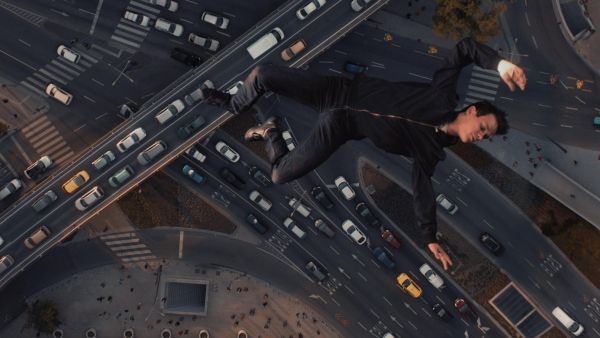Well, the 2017 Cannes Film Festival has wrapped-up. The prestigious film festival was no exception from current political tensions, with security measures intensified and a screening evacuated for fear of a bomb scare.
But here we are—artists and celebrities safe, the movies viewed, reviewed, and rewarded.
The Palme d’Or—or Golden Palm—was awarded this evening at the conclusion of the festival. This is the festival’s “first tier” competition—the Un Certain Regard ceremony, the “second tier,” occurred yesterday.
This year’s award is especially fun—it marks 70 years since the inauguration.
We’ll reveal the big winner in a moment, but, before then, a rundown of the 19 contestants:
01. “The Beguiled” (director: Sofia Coppola; writer: Sofia Coppola)

Starring: Kirsten Dunst, Elle Fanning, Nicole Kidman, Colin Farrell
In this second big screen adaptation of the 1966 Thomas Cullen novel—the first, starring Clint Eastwood and Geraldine Page, was released in 1971—a US Civil War-era soldier’s (Colin Farrell) arrival at an all-female boarding school ignites sexual tensions and rivalries. He’s a Union soldier; the school supports the Confederacy. Star-crossed, as they say.
Why you should care: Apart from the considerable talent in front of the camera, the crew is headed by noneother than writer-director Sofia Coppola, the magician who brought The Virgin Suicides (1999), Lost in Translation (2003), and Marie Antoinette (2006) into being. That’s some pedigree.
How it fared: The Independent wasn’t too happy, calling it her worst work, and Variety called it “pulp made tasteful and flavorless.” Most critics, however, seem to like it—it’s at 77% on Rotten Tomatoes—even if few have been completely won over.
02. “You Were Never Really Here” (director: Lynne Ramsay; writer: Lynne Ramsay)

Starring: Joaquin Phoenix, Ekaterina Samsonov
This mystery noir-inspired movie—adapted by director Lynne Ramsay from Jonathan Ames’s novella—centers on an emotionally troubled former soldier who rescues children from sex trafficking. It’s a character study, driven by plot.
Why you should care: Ramsay’s a proven filmmaker, with a lovely attention to detail and a subtle handling of emotional complexity. Joaquin Phoenix is a remarkable actor who’s somehow been getting better over the years—and his last outing as an emotionally broken ex-soldier, in 2012’s The Master, was one of the single best performances in any film anywhere that I have ever seen.
How it fared: Very well! The Telegraph seemed especially keen. The AV Club decided it was the best film at the festival.
03. “Wonderstruck” (director: Todd Haynes; writer: Brian Selznick)
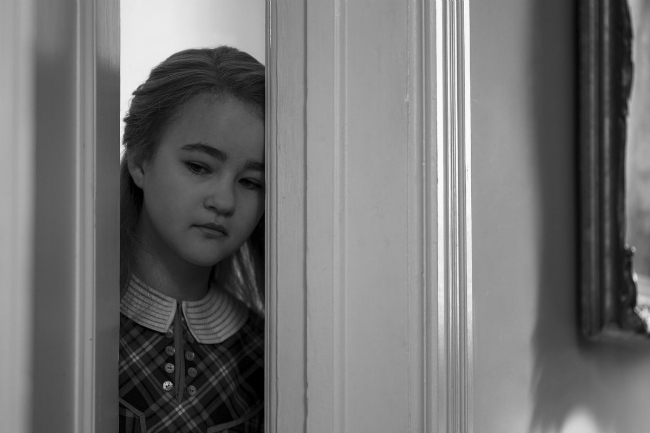
Starring: Oakes Fegley, Julianne Moore, Michelle Williams, Millicent Simmonds
Another novel adaptation—this time, screenwriter Brian Selznick adapts his own novel—Wonderstruck is a film of two stories, on two timelines. In the first, a young, deaf girl runs away from her New York home to find her idol; fifty years later, a Midwestern boy does the same, hoping to find his missing father.
Why you should care: Todd Haynes is no slouch. The man directed 2007’s I’m Not There (that surreal, lovely Bob Dylan “bio”), as well as 2015’s Academy Award-nominated Carol. And check-out that beautiful cinematography—the different colour schemes for different eras. Plus, the concept at the center of this outing is fabulous.
How it fared: It got a three minute standing ovation at Cannes. How’s that for wonderstruck?
04. “Good Time” (director: Ben Safdie, Josh Safdie; writer: Josh Safdie, Ronald Bronstein)
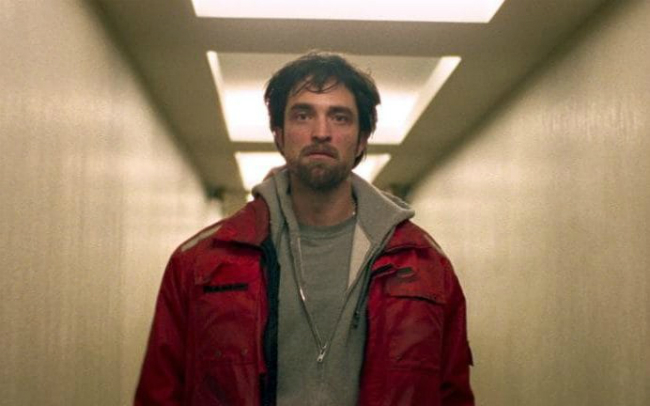
Starring: Robert Pattinson, Barkhad Abdi, Jennifer Jason Leigh
In a throwback to 1970s cinema, this adrenaline pumper sees bank robber Constantine (Pattinson) embarki on a dangerous mission to rescue his brother from jail in the wake of a failed robbery…with the law snapping at his heels.
Why you should care: The Safdie brothers have produced a string of critical darlings, including 2014’s Grand Prix-winning (at the Tokyo International Film Festival) Heaven Knows What.
How it fared: Cannes went absolutely wild for it. It got a six minute standing ovation, for one thing—reducing one half of the director duo to tears—and The Hollywood Reporter says it’s something of a career high for Pattinson. Good times indeed.
05. “Happy End” (director: Michael Haneke; writer: Michael Haneke)

Starring: Isabelle Huppert, Jean-Louis Trintignant, Mathieu Kassovitz, Loubna Abidar, Toby Jones
This French language “satanic soap opera” is about a European family rocked by the ongoing refugee crisis. Things…don’t go well.
Why you should care: Haneke is a great filmmaker—the sort that impresses ardent film buffs for sheer mastery. And why not? When you’ve made The Piano Teacher (2001), Funny Games (2007), and especially that masterpiece Amour (2012), your reputation should precede you. Also, a hamster does drugs in this one.
How it fared: The Guardian absolutely adored it. Variety was rather happy with it, as well. They all seem to suggest that some knowledge of Haneke’s other films would add to the experience, though.
06. “The Meyerowitz Stories (New and Selected)” (director: Noah Baumbach; writer: Noah Bambauch)

Starring: Adam Sandler, Ben Stiller, Emma Thompson, Dustin Hoffman
A family reunites to celebrate a father’s artistic career in this story of family dysfunction wrapped in comedy.
Why you should care: Apart from real acting talent in the form of Emma Thompson and Dustin Hoffman kicking it up on the screen? Well, if you like Woody Allen, you’d love Noam Baumbach, a clever, funny writer with Woody Allen’s neurotic touch who tackles difficult subject matter with pathos, grace, and humor. And as a director he’s so good he’s actually managed to coax the rare good performance out of Adam Sandler. Also: The Squid and the Whale (2005)? While We’re Young (2014)? That was him.
How it fared: Oh, very well. The Guardian praised its “smart writing” and “strong ensemble cast.” The Telegraph was smitten.
Trailer: none yet.
07. “In the Fade” (director: Fatih Akin; writer: Fatih Akin)

Starring: Diane Kruger
In this German drama, a Neo-Nazi terrorist bombing kills a woman’s husband and son. When the criminal justice system fails her, she decides to take matters into her own hands.
Why you should care: I’ve always found Diane Kruger a compelling actress, for one thing, and the story tackles an unfortunately contemporary subject matter. The director, Fatih Khan, is a proven filmmaker; he’s had a misstep or two, but it’s an enviable body of work.
How it fared: The Guardian called it “feeble” and “uncompelling”; Variety liked it well enough, though it had its criticisms.
08. “Okja” (director: Bong Joon-ho; writer: Bong Joon-ho, Jon Ronson)

Starring: Ensemble cast (Tilda Swinton, Paul Dano, Ahn Seo-hyun, Byun Hee-bong, and more)
In this comedy thriller, a young girl named Mija fights against a multi-national company to prevent them from capturing her friend, a massive, hairy animal named Okja.
Why you should care: Here’s the thing: Bong Joon-ho may be the best director working today. Yes, he’s got a remarkable cast in front of him when it comes to Okja, his first action-adventure film. But this is a director that’s cranked-out masterpiece after masterpiece, including Memories of Murder (2003), The Host (2006), Mother (2009), and Snowpiercer (2013), each of which is a filmmaking masterclass. I highly recommend Every Frame a Painting’s analysis of the director’s use of ensemble staging, as well as (though this one is spoiler-heavy) Mother’s use of telephoto profile shots.
How it fared: The Guardian was infatuated, calling the film “wonderful…comparable ET or Roald Dahl.” (Those of us more used to Bong Joon-ho’s darker outings are allowed to be curious and/or confused.) The Hollywood Reporter wasn’t as enthused, considering the film a bit jumbled, tonally.
09. “The Killing of a Sacred Deer” (director: Yorgos Lanthimos; writer: Yorgos Lanthimos, Efthymis Filippou)

Starring: Colin Farrell, Nicole Kidman
Colin Farrell and Nicole Kidman reunite for their second 2017 Cannes outing in this Irish psychological horror about a doctor who adopts an increasingly sinister teenager into his family, leading to a “terrible decision” the doctor has to make.
Why you should care: Lanthimos wowed art circuits with his 2015 outing The Lobster, which found itself nominated for an Academy Award for Best Picture (again starring Farrell). The weirdness factor isn’t down in this tragic, allegorical gut-twister.
How it fared: They were amazed and terrified in equal measure. The Hollywood Reporter nails it: “The rich vein of unsettling darkness and psychological unease that ripples like a treacherous underground stream beneath the absurdist humor of Yorgos Lanthimos' work becomes a brooding requiem of domestic horror in his masterfully realized fifth feature, The Killing of a Sacred Deer.” A family feature, then.
10. “The Double Lover” (director: François Ozon; writer: François Ozon)
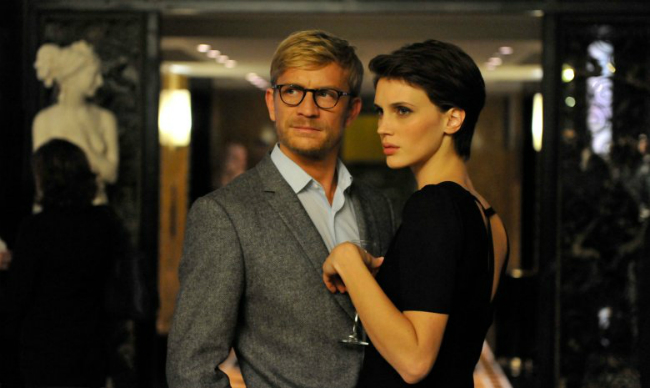
Starring: Jacqueline Bisset, Marine Vacth, Jereme Renier
An erotic thriller—it’s French, by the way—in which a psychoanalyst and his patient take an unorthodox approach to therapy (they bonk). But all is not as it seems.
Why you should care: Ozon is, again, a proven talent, a man of the “new New Wave” of French cinema who made his name with films like Swimming Pool (2003) and The New Girlfriend (2014), adapted from a Ruth Rendell novel. Good stuff.
How it fared: The Telegraph loved it, calling it a “sexy thriller [that] hits all the parts Fifty Shades couldn’t reach.” The Upcoming was similarly impressed, complimenting the film by calling it “ridiculous” but “filled to the brim with pure cinematic imagery.”
11. “A Gentle Creature” (director: Sergey Loznitsa; writer: Sergey Loznitsa)

Starring: Vasilina Makovtseva, Valeriu Andriuta, Sergei Kolesov, Dmitry Bykovsky
This Ukrainian drama—very loosely based on a novella by Fyodor Dostoevsky —tells the story of a woman travelling to a nightmarish prison to demand answers: namely, why the parcel she sent her husband was returned, marked “return to sender.”
Why you should care: Sergei Loznitsa returns to fiction after five years of documentaries, and we’re talking about the artist who made In the Fog (2012) here.
How it fared: The Hollywood Reporter was impressed. And The Guardian loved it too, calling it a “brutally realist drama.” Evening Standard was less enthralled.
12. “Redoubtable” (director: Michel Hazanavicius; writer: Michel Hazanavicius)

Starring: Louis Garrel
Jean-Luc Godard—the seminal filmmaker behind masterpieces such as Breathless (1960)—is the subject of this French biographical comedy-drama. Specifically, Redoubtable hones in on his affair with French actress and novelist Anne Wiazesmy. The film was adapted from Wiazesmy’s 2015 memoir, One Year Later.
Why you should care: Michel Hazanavicius made a name for himself by winning the Academy Award for Best Picture with 2011’s The Artist—the first silent film to win the award since Wings won in 1929.
How it fared: It sounds like a love-or-hate thing. indieWire liked it, especially appreciating how it humanized Godard; the AV Club hated it. It sits at a very telling 50% on Rotten Tomatoes—with 10 critics for, and another 10 against.
13. “Loveless” (director: Andrei Zvyagintsev; writer: Oleg Negin)

Starring: Maryana Spivak, Aleksey Rozin, Matvey Novikov, Marina Vasilyeva, Andris Keišs
A couple fights, and fights, and fights, and halfway through their latest quarrel, their child disappears. The massive search which follows tears the family further apart.
Why you should care: Zvyagintsev is a master filmmaker whose Leviathan (2014)—written with Loveless writer Oleg Negin—was nominated for an Academy Award for Best Foreign Language Film. He uses the story of the fight to explore a society’s problems and neuroses, all while letting his story flow.
How it fared: It bowled critics over. Time felt it was among the festival’s best films: “The picture is made with a seeming chilliness that’s actually a kind of anguished warmth.” RogerEbert.com thought it was “austere and beautiful, leisurely yet compelling.”
14. “Radiance” (director: Naomi Kawase; writer: Naomi Kawase)

Starring: Masatoshi Nagase, Ayame Misaki
Misako (Misaki), a writer tasked with writing audio descriptions for the visually impaired, falls in love with a visually-impaired photographer on her advisory panel.
Why you should care: It takes skill for a director to have had five films compete at the official Cannes Film Festival competition. Naomi Kawase is that skilled.
How it fared: Mixed reviews. The Guardian summed it up by calling it a “gentle, thoughtful story” bogged down by an “exasperating tendency towards sentimentalism.”
15. “The Day After” (director: Hong Sang-soo; writer: Hong Sang-soo)

Starring: Kim Min-hee
A black-and-white South Korean outing about an emotionally confused book publisher and the woman his wife mistakes for his former lover.
Why you should care: Hang Sang-soo has two films at Cannes this year—the other, Claire’s Camera, was shown in a special screening—which, hey: talent. But more importantly, Hang Sang-soo makes talky, absorbing films, and this—more of the same where more of the same is a good thing—is a rare spark of light in what has been a dark, dark film selection.
How it fared: It’s popular; critics are actually pleased Hang Sang-soo is providing more of the same, with indieWire, Variety, and The AV Club all enjoying the film.
Trailer: none yet
16. “120 Beats per Minute” (director: Robin Campillo; writer: Robin Campillo, Philippe Mangeot)
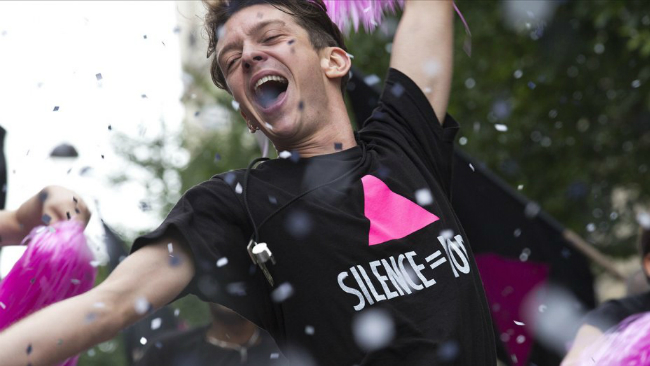
Starring: Nahuel Pérez Biscayart, Arnaud Valois, Adèle Haenel, Antoine Reinartz
Another French film, this one set in early 1990s Paris and centered on young activists working with ACT UP who target pharmaceutical labs with the hopes of landing a cure.
Why you should care: Campillo is a capable filmmaker, having helmed zombie flick They Came Back (2004) and Eastern Boys (2014), a moving drama, both of which were critically acclaimed.
How it fared: Pretty well, though the AV Club says that the applause was “less than rapturous.” Advocate.com called the film “deeply moving.”
17. “Rodin” (director: Jacques Doillon; writer: Jacques Doillon)

Starring: Vincent Lindon
Auguste Rodin, the revolutionary French sculptor, gets the spotlight in this biographical drama, which centers on his relationship with his partner Rose Beuret and colleague Camille Claudel.
Why you should care: Doillon is an auteur, with several decades of experience under his belt.
How it fared: It crumbles like a mud statue. Variety calls the film “ploddingly didactic,” while The Film Stage says “it all but sucks away the drama in favor of scenes of the artist creating his work.” Too bad.
18. “The Square” (director: Ruben Östlund; writer: Ruben Östlund)

Starring: Claes Bang, Elisabeth Moss, Dominic West, Terry Notary
In this Swedish satire, the Swedish monarchy is abolished and the Stockholm Palace converted into an art museum. The museum’s curator, one Christian, stages a new exhibition called “The Square” in hopes of attracting publicity.
Why you should care: Östlund is, again, a real talent, a BAFTA nominee with great films like Force Majeure (2014) to his name. Plus, this one has Dominic West, everyone’s favourite alcoholic detective in The Wire.
How it fared: Vulture described it as a “fantastically uncomfortable art-world farce.” Variety’s response was slightly cooler: “Another…high-wire piece of sociological suspense…But its force isn’t as major.”
19. “Jupiter’s Moon” (director: Kornél Mundruczó; writer: Kata Weber)

Starring: Merab Ninidze
In this Hungarian fantasy, Aryan, a young refugee, escapes his refugee camp when he discovers that he can fly; he evades the authorities as he embarks on a search for his father.
Why you should care: Mundruczó was the winner of the Un Certain Regard prize in 2014 (for his film White God). He’s back in style.
How it fared: indieWire liked the movie, calling it “a vapid but visually astonishing” affair. The Guardian likes it too, saying that, for all its faults, it’s an ambitious film.
And the winners are…
With all that: who are the winners, do you reckon?
Palme d’Or: The Square (Ruben Östlund)
70th Anniversary Award: Nicole Kidman
Grand Prix: 120 Beats per Minute (Robin Campillo)
Director: Sofia Coppola, The Beguiled
Actor: Joaquin Phoenix, You Were Never Really Here
Actress: Diane Kruger, In the Fade
Jury Prize: Loveless (Andrey Zvyagintsev)
Screenplay: (tie) The Killing of a Sacred Deer (Yorgos Lanthimos, Efthimis Filippou) and You Were Never Really Here (Lynne Ramsay)
And there you are. Will the winning film square up to the hype?
There’s only one way to find-out. See you at the movies!


